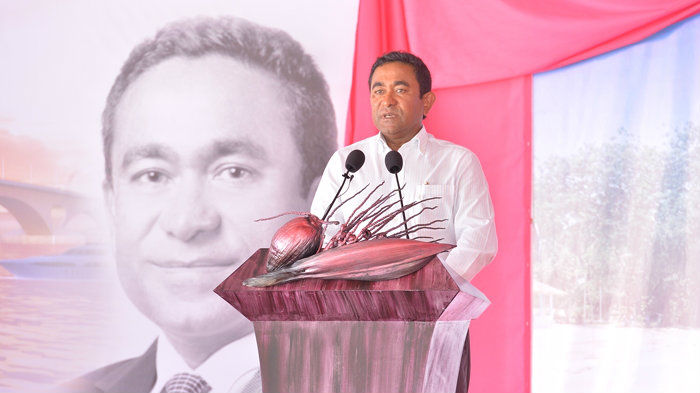Yameen mocks calls for reform ahead of all-party talks
President Abdulla Yameen has made it clear that he considers the release of jailed politicians as abuse of his powers, despite international calls to do so as a show of good faith ahead of all-party talks.

02 Mar 2016, 09:00
President Abdulla Yameen has made it clear that he considers the release of jailed politicians to be abuse of his powers, despite international calls to do so as a show of good faith ahead of all-party talks.
“Which rights have we violated? Whose, which human right have we violated?” he repeatedly said during a speech on the island of Vashafaru in northern Haa Alif Atoll on Tuesday, just a day before a first meeting was to take place between political parties.
Yameen, whose administration narrowly avoided action by the Commonwealth last week, went on to mock calls for freedom for leading political figures.
“Now I am thinking that my government has to appeal to some parties to present me with a list of people who they think are above the law…Then they will not have to be summoned to a courtroom or investigative body no matter what they do here in the Maldives. They would not be penalized,” he said.
Become a member
Get full access to our archive and personalise your experience.
Already a member?
Discussion
No comments yet. Be the first to share your thoughts!
No comments yet. Be the first to join the conversation!
Join the Conversation
Sign in to share your thoughts under an alias and take part in the discussion. Independent journalism thrives on open, respectful debate — your voice matters.




